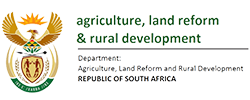CASSAVA HAS POTENTIAL TO STIMULATE ECONOMIC ACTIVITIES, CREATE JOBS AND ENHANCE FOOD SECURITY
Thanduxolo Adonis
 On 15 October 2024, the National Agricultural Marketing Council visited a new cassava venture in uMkhanyakude, northern KwaZulu-Natal, dubbed “Project White Gold”. The project has been initiated to grow the local economy and promote social transformation.
On 15 October 2024, the National Agricultural Marketing Council visited a new cassava venture in uMkhanyakude, northern KwaZulu-Natal, dubbed “Project White Gold”. The project has been initiated to grow the local economy and promote social transformation.
The project was started Ms. Ndabezinhle Mabaso and Mr. Markus Froelich, the founders of AVCO Foods. The “White Gold” project is a catalyst for economic opportunities and social inclusion in rural KZN. By establishing a vibrant cassava value chain, the project creates jobs, skills development, and uplifts marginalized communities. Through meaningful stakeholder participation and a market-led approach, the project guarantees reasonable benefits and sustainable growth. “White Gold” exemplifies how inclusive and resilient value chains can drive change and transform the lives of people in economically disadvantaged areas.
This project also seeks to establish a strong cassava industry, spanning farming, processing, and market distribution. It aims to involve key stakeholders, empowering rural communities, and promoting inclusive growth. Strategic partnerships can allow investors, food processors and public institutions to add value to local and global markets.
With a target of up to 10 000 hectares for cassava cultivation and the processing of tapioca starch, this project could supply the local market and replace up to 20 000 tons of imported tapioca starch.
Ms. Mabaso says AVCO Foods’ desire is economic and social transformation. “Project White Gold creäte economic and social transformation to the rural communities of northern KwaZulu-Natal. By establishing cassava production on this land, the project will bring life to the community, while the local economy is estimated to grow by R900 million per year”.
According to Mabaso cassava is a hardy plant, able to tolerate drought conditions, grows in a variety of soil types and can be left in the ground for long periods of time, offering excellent food security to those who don’t have food storage facilities. The roots can be used for food, most famously tapioca, which in Africa is prepared and eaten like a maize porridge, whilst elsewhere it is also used as a dessert. Several African countries are gradually replacing wheat flour with cassava flour from 10 to 40 percent to produce staples like bread, biscuits, pasta or noodles.
By localising the farming and processing of cassava, the project will achieve large-scale social and economic transformation in uMkhanyakude, KZN’s most-poorest district.
The project will use regenerative agricultural practices, and cassava will be processed in a factory operating on green energy and generating no waste. An agricultural training centre will support subsistence farmers as they become commercial farmers.
“We trust that South Africa, through the local production and processing of cassava, can not only lessen its dependence on the import of tapioca starch but also play an influential role in the world market, we are very delighted with the support we get from the community and tribal authorities,” says Froehlich.
AVCO Foods says local communities, subsistence farmers and tribal authorities are playing an integral role in decision-making processes and the establishment of the project.
“This local cassava value chain will provide market access for subsistence farmers, employment opportunities for women and youth and training for producers,” says Mabaso.
“By investing in communities’ capacities, providing economic opportunities and fostering a sense of ownership, the project empowers communities to actively participate in and benefit from the cassava industry,” Mabaso concluded.


